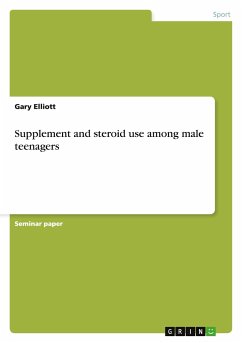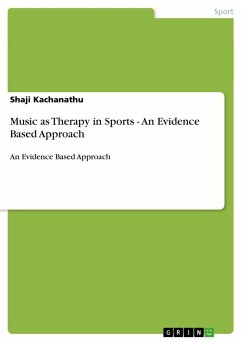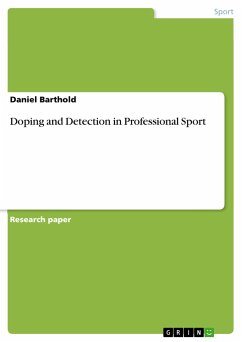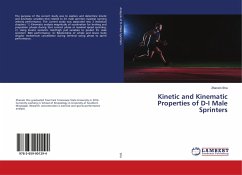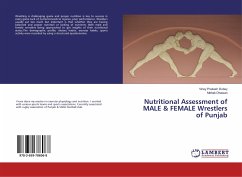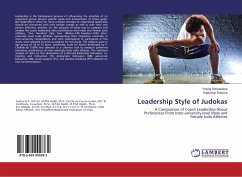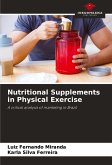Seminar paper from the year 2010 in the subject Health - Sport - Sport Medicine, Therapy, Prevention, Nutrition, ( Atlantic International University ), language: English, abstract: In any paper revolving around teenagers and their use of 'mass building' supplements it is important to note that the use of supplements to build mass and the use of steroids are not mutually exclusive. Many authors of works on body image and steroid use believe that they are inextricably linked. It is debatable as to whether the use of over-the-counter supplements are a 'gateway' to the use of more damaging steroids but the overwhelming feeling confirms that the risk is increased when teenagers begin to take supplements. The Centre for Disease Control and Prevention's (CDC) Youth Risk Behaviour Surveillance- United States, reports that the percentage of students using steroids increased to 6,1% by 2002. The common belief that 'supplements' are not potentially dangerous has resulted in a limited amount of information about youths (of school-going age) and their 'supplement use' habits. As such, the preliminary information in this paper will focus on the prevalence of steroid use among males. The National Centre for Education Statistics estimated that in 2005, of "16,5 million some 5,4% of the public and private school children between" the ages of 14-17 years (660 000 children) had used or were using steroids. In Body Dysmorphic Disorder in Men, Phillips indicates that between 6 and "7% of high school boys have used these drugs" (Phillips: 2001). Adolescent anabolic steroid use is a nationwide phenomenon with "prevalence rates among high school males [ranging] from 5-11%", with high school athletes continuing to use these agents to improve their athletic performance and appearance despite the associated risks (Proctor: 1998). In addition, it is reported that school children begin using anabolic steroids before the age of 16 years and up to 86% of these students have no intention to cease their use of these illegal drugs. In light of these statistics, in any attempt to reduce the associated health risks of steroid use/abuse, it is imperative that implementation programmes to that effect are introduced into the school curriculum at the very latest in junior high. "Performance enhancing drugs" have been around for centuries; the ancient Greeks used "strychnine and hallucinogenic mushrooms" in preparation for the original Olympic Games; years later (1886), the first athlete died from using performance-enhancing drugs (Luciano: 2001, 175)...
Hinweis: Dieser Artikel kann nur an eine deutsche Lieferadresse ausgeliefert werden.
Hinweis: Dieser Artikel kann nur an eine deutsche Lieferadresse ausgeliefert werden.

